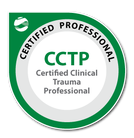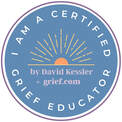|
“We search for happiness everywhere, but we are like Tolstoy’s fabled beggar who spent his life sitting on a pot of gold, under him the whole time. Your treasure–your perfection–is within you already. But to claim it, you must leave the busy commotion of the mind and abandon the desires of the ego and enter into the silence of the heart.” — Elizabeth Gilbert
One of the comments I hear repeatedly in sessions is that people just want to be happy. While it seems like a simple request it is elusive for many. Why is happiness so hard to find? I believe that people aren’t looking in the right place. They spend their time searching for something to bring them happiness. Our media has sold us on the belief that we need their product in order to be happy. We can only smile when we have a Coke in our hand or when we are eating a Big Mac. Contrary to what most people believe, getting the perfect job, finding a soulmate, or moving into the dream house are not things that will bring happiness. There are plenty of people who have those things and are still miserable. Happiness is something that we all have. If you are able to bring happiness and joy to others it is because you have it within you. We can only give what we already have. The problem is that we are often good at giving happiness, but are blocked to receiving it. It is like we are only ever able to exhale without being able to inhale. It just doesn’t work. What we need is to be able to complete the circuit. We need to open ourselves up to receive the joy and experience the happiness that is already ours. Happiness is our default programming, our natural state of being. Our thoughts, worries and ruminations are like a wedge that is driven down, cutting off the return flow of happiness. As long as we are stuck in our head we are not able to feel our natural happiness. When we take time for ourselves, when we slow down and enjoy the smell of the flowers or look in awe at the night sky, we open up the flow. We can also become curious about what the blocks in our lives are. Working to understand and push through the pain of the blocks allows them to dissolve and returns us to the natural state of happiness and joy that is our birthright. Are you ready to look at the blocks to happiness and open up to joy?
0 Comments
“If one does not know to which port one is sailing, no wind is favorable.” –Lucius Annaeus Seneca
Working with couples is always interesting. Two unique individuals cannot spend a significant amount of time together without bumping into each other from time to time. There are bound to be disagreements or arguments, but how they are dealt with can make the difference between a healthy relationship and a rocky one. One of the things I often see is that the partners are sailing in two different directions. When couples are stuck, it is because they are not able to communicate clearly the destination that they are working towards. The relation-ship becomes divided and mutiny abounds. Whether it is because they have not clearly decided on the ship’s destination or that they have envisioned different docks without communicating where they are going, trouble looms when all hands are not on deck. By the time they come to my office, some partners have already boarded the lifeboat and are ready to set sail in their own direction. In order to work out disagreements, both partners need to get on board the ship and decide the direction it is heading. When they agree on the port, it becomes much easier to steer the ship and navigate through rough waters. In order for couples to get onboard a unified relation-ship they need a clear vision of what their goals are. Do they want to save for a house in the country or rent a condo in the city? Do they want to have a large family or only pets? Do they want to take vacations to Europe or go camping in an RV for the summer? When couples share common goals the destination is set and they can help each other navigate when they start to drift off course. Having a common destination does not mean that each partner can’t take their own excursions. It is critical for each partner to have their own hobbies, friends and interests, but they return to their home base, together. One partner’s excursion is no more important than the partner’s. In a family, everyone’s needs are equally important and no one sacrifices their own needs for the other. Needs can be negotiated and compromised, but there is always give and take in order to provide balance. When everyone is on board and working together, it is smooth sailing and you can reach the destination with much less stress. Take a moment to assess the crew on your current relation-ship. Is the navigation on course? If not, take some time to re-assess and verify that you are both heading for the same destination. “Forgiveness says you are given another chance to make a new beginning.” –Desmond Tutu
We are often told to ‘forgive and forget.’ I don’t believe these two words should ever go together. Forgiveness does not mean forgetting what happened. Whatever happened did happen and we do not have a magic eraser to clean it from our mind. We remember what we did or what someone did to us and forgetting the event simply, does not happen. The work of forgiveness is challenging. There are many layers to it. I often hear people say that they have forgiven themselves or someone else, but if there is still something about the situation that continues to bother us, the work is not complete. I once heard someone say that there were some people who were not safe to walk the streets of her mind. Whenever she thought of ‘that person’ or what they did she would attack them. I love that visual and whether it is someone we are rehashing an argument with or beating ourselves up for something we did, as soon as the thought occurs, our brains go into attack mode. Forgiveness is something we do to release the anger we are holding. This is for both self-forgiveness and the forgiveness of others. The Buddha compared holding onto anger, to holding a hot coal with the intent to throw it at someone. The problem is that while you are holding the hot coal you are the one who is getting burned. We need to drop the coal, because we are only hurting ourselves. Releasing the anger does not mean saying that what happened was okay. It does not mean that we condone whatever happened. What it does mean is that we can move forward. We have not yet developed the time machine, so none of us can go back to change the event. We can decide to release the anger over the event though and that is powerful. Choosing to forgive is to accept our own and other’s imperfections. It is to acknowledge that what was said or done was painful, but we don’t need to carry the pain indefinitely. It is a choice to say that we have suffered enough and we are ready to forgive. It is a personal choice that can have a profound effect. Who are you ready to forgive? “If you don’t change your beliefs, your life will be like this forever. Is that good news?” –W. Somerset Maugham
We all have our own way of being in this world. Some people are optimistic and ‘happy go lucky,’ while others are pessimistic and constantly waiting for the next stroke of bad luck to hit. We all fall somewhere on that continuum and that is our baseline experience of the world. It is our default internal programming that keeps us stable in life. When we are on our baseline, life feels ‘normal’ or routine. When events happen, they sometimes throw us off our baseline. We can tell when things are off. We either have a feeling of being down, below our baseline, or things are going well and we are above our baseline. Resiliency is often discussed as being able to get back to ‘normal,’ or baseline after an event occurs. While getting back to baseline is comfortable, this doesn’t always serve us. I often use an example of someone who has been living in poverty their whole life and they suddenly win the lottery or inherit a fortune. Many times, these people spend the money in excess and find themselves right back at their poverty baseline. It doesn’t have to be that way though. If they are able to raise their baseline and see themselves as a wealthy individual who respects the money they have, they can budget and invest to remain wealthy. In order to raise our baseline, we need to see ourselves differently. This comes from doing the work of self-compassion and forgiveness. It comes from questioning our beliefs about who we are and what we want in our lives. Working in the addictions field, I frequently see people who start doing well once they get clean. For a period of time, things seem to be improving and changing. Then suddenly something happens which causes them to relapse. While they tell me that they have bad luck, what I often see is self-sabotaging behaviors. Their baseline beliefs about who they are have not caught up with the changes that are happening in their lives. They often feel unworthy of good things happening, or feel that they need to be punished for choices they made. While intellectually they want the good, their underlying beliefs are stuck on seeing themselves as ‘broken’ or ‘dirty’ because of what they did. Their baseline beliefs are still low, so their behaviors bring them right back to baseline. In order to grow, our baseline beliefs about ourselves need to change. When we go through a difficult period, many people emerge stronger than before. This is referred to as post-traumatic growth. The baseline of how they see themselves shifts during the low point and they have more confidence and awareness once they get through. When we go through joyful times our baseline can raise as well. Knowing that we are deserving of the good and worthy of the blessings allows our baseline to float up and become our new normal. The key to growth is recognizing our baseline and questioning the beliefs that hold the baseline down. What are your baseline beliefs? |
Archives
April 2020
Categories
All
|
 RSS Feed
RSS Feed




